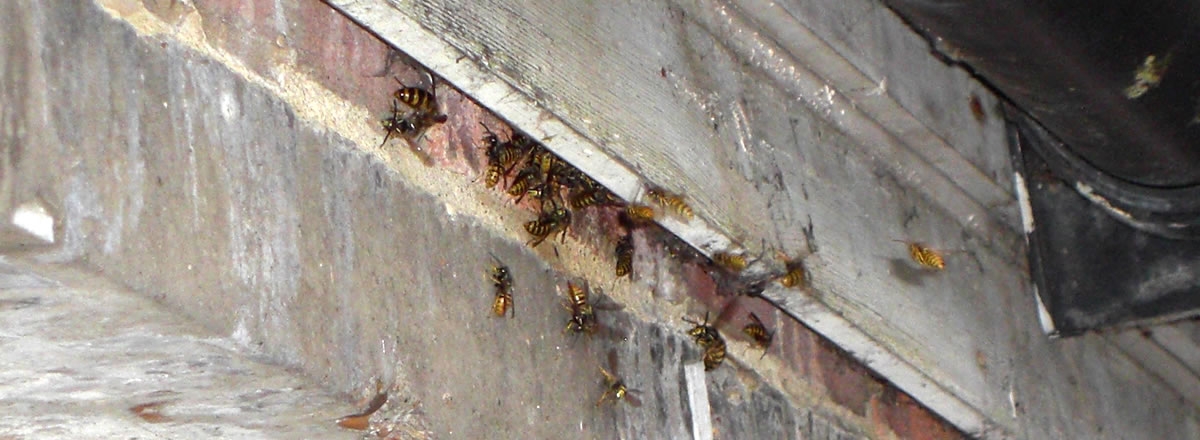Call us for a free quote on 400 820 8770
How to deter bees and wasps from nesting
Monitoring is key if you want to avoid problems with bees and wasps, especially if you know the area you are occupying has this pest problem. It is always easier to prevent a problem before it happens, rather than to wait for them to invade your home or garden.
Wasp deterrent tips
-
Check for nests - Check your home and garden for nests, usually walnut or golf ball in size at the beginning - early small nests have fewer wasps and are easier to treat quickly. Look for nests in garages, sheds, cavity walls or under eaves.
-
Secure bins - Ensure outside bins have tightly fitting lids. Keep bins at a distance from doors and windows so wasps are not attracted to the contents.
-
Keep windows and doors shut - To prevent wasps entering inside your home.
-
Keep a safe distance - If you have spotted a nest, make sure you keep children and pets away from the area.
How to deter unwanted bees
-
Seal potential entry points - Bees can enter any structure or object that contains a hole that is a quarter of an inch or larger.
-
Apply treatment to the scout bees - deter them from informing the swarm of the potential nesting spot. As a result, the swarm moves on to another location. However, the trick is to take action quickly as bees can move in suddenly.
-
Remove outdoor mess - can also prevent bees from nesting in your yard. Unused appliances or lawn equipment found in gardens can attract honey bees since they provide sufficient shelter for a hive to thrive.
-
Remove all traces of the honeycomb - pheromone scents left on honeycomb can attract newcomers if your home was previously occupied by honey bees.
Although high numbers of bees or wasps in your home or garden almost certainly means there is a nest nearby, getting rid of a hive/nest may not always be a possible solution. If the hive/ nest is not on your property, you will have very limited control on what you can do to remove it. Nests located in confined, hard-to-reach areas (such as cavity walls) will also be more difficult to treat.
Call Rentokil Initial on 400 820 8770 to arrange a visit or book online today.
